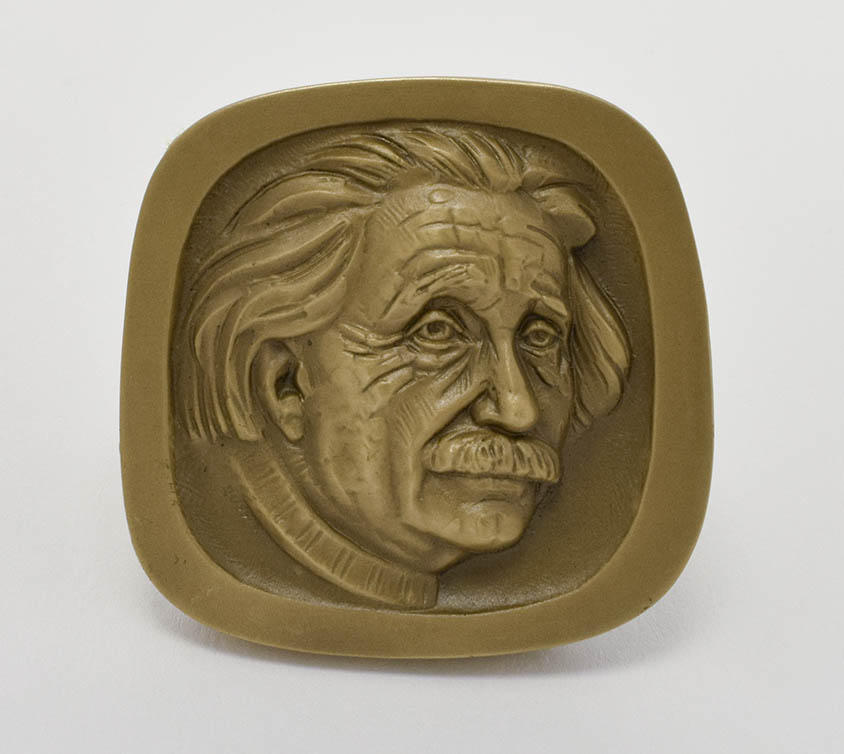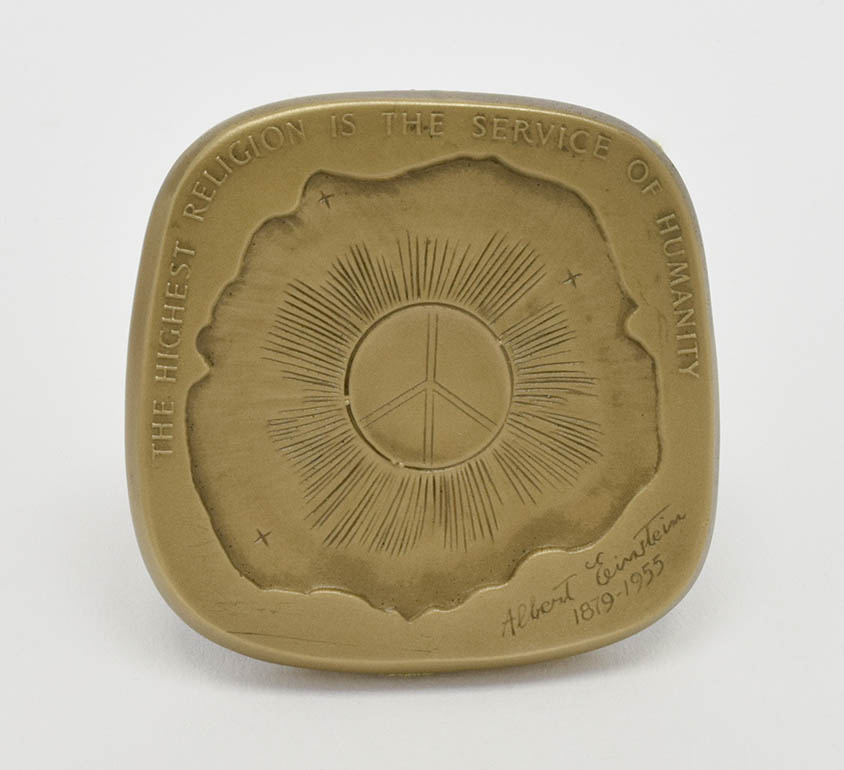Albert Einstein (1879-1955)
Robert Russin (New York, NY 1914-Los Angeles, CA 2007)
USA, 1970
Bronze, h. 1 ¾ x w. 1 ¾ in.
Cincinnati Skirball Museum, Jewish-American Hall of Fame Collection, gift of Mel and Esther Wacks, Debra Wacks, and Shari Wacks, 2019.7.3
One of the greatest physicists of all time, Albert Einstein was born in Ulm, Germany. He earned his doctorate from the University of Zurich in 1905 and became a Swiss citizen. Unable to get an academic position, he took a post at the Berne patent office. In 1905, he published four papers that transformed 20th-century scientific thought. He established the special theory of relativity, predicted the equivalence of mass (m) and energy (e) according to the equation e = mc2 , where (c) represents the velocity of light; he created the theory of Brownian motion and founded the photon theory of light (photoelectric effect) for which he received the Nobel Prize in 1921. Apart from his scientific achievements, Einstein advocated for a united Europe in 1914, and welcomed the establishment of the League of Nations in 1919 and the United Nations in 1945. He was deeply concerned with Jewish affairs and devoted his energies to the creation of Brandeis University. In the 1920s, the anti-Semitism he faced in Berlin, where he taught at a number of prestigious institutions, convinced him of the need for a Jewish state. Einstein was visiting the United States in 1933 when Hitler came to power and never returned to Germany. He became an American citizen in 1940 and was affiliated with the Institute for Advanced Study in Princeton, New Jersey, until his death. On the eve of World War II, he endorsed a letter to President Franklin D. Roosevelt alerting him to the potential development of “extremely powerful bombs of a new type” and recommending that the United States begin similar research. This eventually led to the Manhattan Einstein supported the Allies, but he generally denounced the idea of using nuclear fission as a weapon. After the death of Chaim Weizmann, when he was asked if he would accept the presidency of Israel, the 73-year-old scientist declined, expressing regret and distress “because my relationship to the Jewish people has become my strongest human bond, ever since I became aware of our precarious situation among the nations of the world.”


